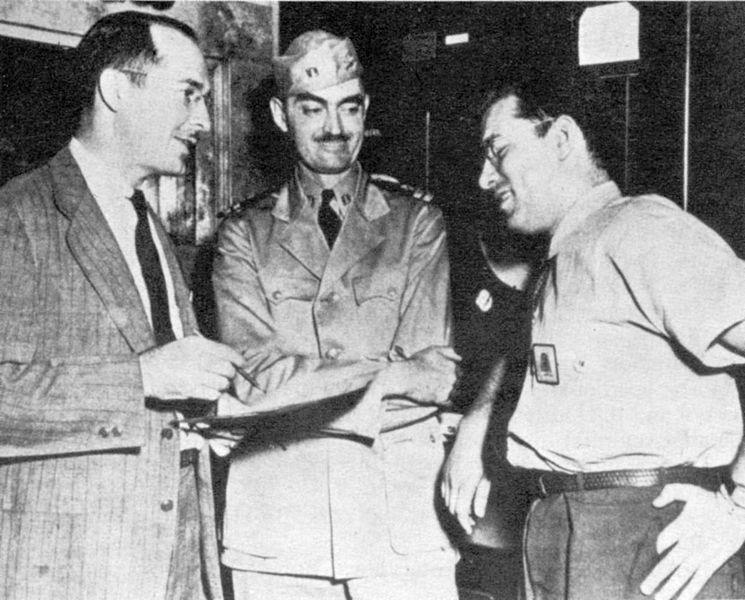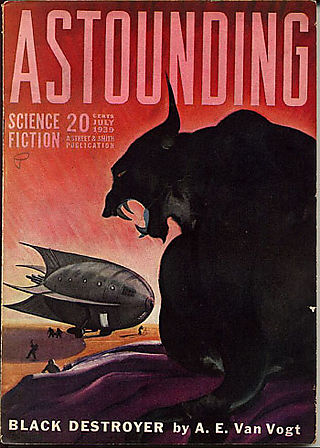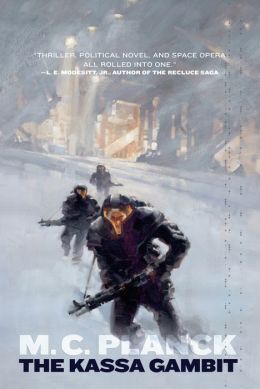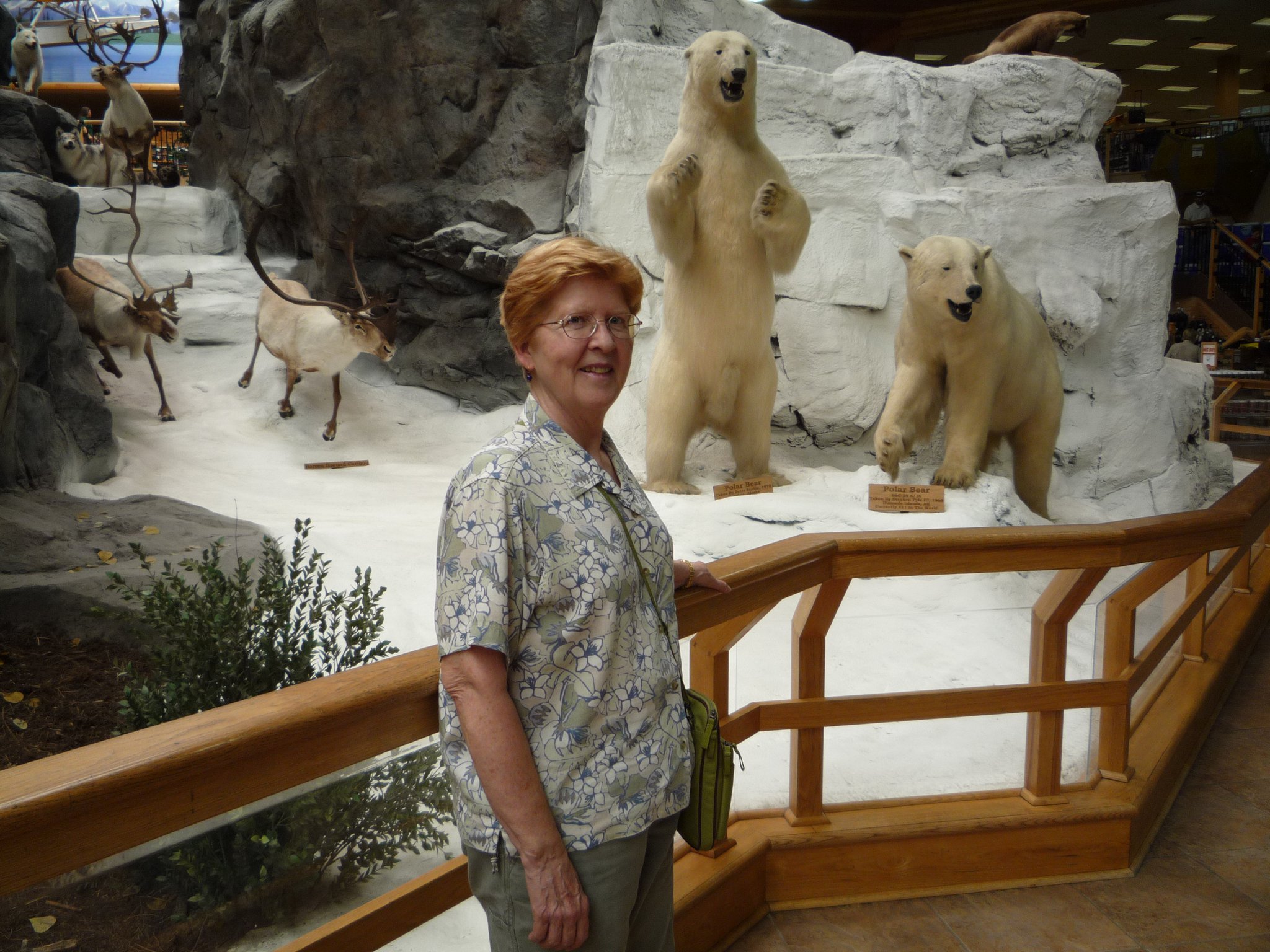The Futurians and the 1939 World Science Fiction Convention
/ One of the interesting things that I came across recently was the story of the Futurians at the 1st WorldCon in 1939. The Futurians were a legendary group of fans - quite a few notable authors came out of their ranks over the years, and it looked like an interesting story, one that was far more complicated than I thought.
One of the interesting things that I came across recently was the story of the Futurians at the 1st WorldCon in 1939. The Futurians were a legendary group of fans - quite a few notable authors came out of their ranks over the years, and it looked like an interesting story, one that was far more complicated than I thought.
Fandom is really an artificially constructed thing - Gernsback helped jumpstart it alongside his magazines with his Science Fiction League clubs around the US, probably recognizing that if you keep your readers engaged, you'll have a more reliable cash flow. Would fandom have emerged on its own, without those clubs? Maybe, but I'd bet that it helped define the identify of a science fiction fan far earlier, and from what I've seen, you really don't have the same communities in other genres (although that's just from my own observation, rather than any actual research.
I'll admit, I have a bit of an ax to grind with this piece: the fan community can be infuriatingly annoying at times. It doesn't matter if it's amongst book reviewers, 501st members, authors, literature fans, movie fans, or any other community, there's always drama. And, it looks like there's always been drama. It's something that I'm a bit tired of, and I'm beginning to just ignore people who are drama-prone in my own life. It's a bit liberating, but isolating, at times.
Go read The Futurians and the 1939 World Science Fiction Convention here.
The Futurians, Damon Knight. This is probably the best place to go to read about the Futurians, written by one of their members. It's certainly one-sided, but it's an interesting read. The Immortal Storm, Sam Moskowitz. This is an exhaustive, egotistical and defensive book, and I wonder if Moskowitz had some lingering resentment about the event. This book is a fairly exhaustive (and it's utterly exhausting to read) look at fandom. I found myself very disheartened by what I read here: it's a petty survey, but it does contain quite a bit of information about the early days. Basement and Empire series, Frederik Pohl. Pohl talks a bit about early fandom in this series of blog posts for his website, The Way the Future Blogs. These, and the rest of his website, are a very, very interesting read. The Way the Future Was: A Memoir, Frederik Pohl. Polh's biography is a neat who's who of the early science fiction days, but he doesn't go into much detail about the events of the 1939 convention, simply noting that it happened, and who was involved.

 One of the things that I've found distinctly interesting about the Golden Age of SF is how the authors shape the field that they're in, but also how much one can extrapolate a larger picture out of an author's life. An excellent example of this is Judith Merril, through whom one can find an excellent viewpoint of the shifts in publishing, as well as a number of similarly-high-profiled authors writing at the same time. This is the first of probably a couple of posts about Merril - her career as a whole will likely require more space. Indeed, the Futurians themselves warrant a couple of posts of their own.
One of the things that I've found distinctly interesting about the Golden Age of SF is how the authors shape the field that they're in, but also how much one can extrapolate a larger picture out of an author's life. An excellent example of this is Judith Merril, through whom one can find an excellent viewpoint of the shifts in publishing, as well as a number of similarly-high-profiled authors writing at the same time. This is the first of probably a couple of posts about Merril - her career as a whole will likely require more space. Indeed, the Futurians themselves warrant a couple of posts of their own.
 I came across something interesting in the last couple of years: The best of the Star Wars films, The Empire Strikes Back, was written by a longtime SF author, Leigh Brackett, who had written the film's first draft before passing away. When I had been
I came across something interesting in the last couple of years: The best of the Star Wars films, The Empire Strikes Back, was written by a longtime SF author, Leigh Brackett, who had written the film's first draft before passing away. When I had been 
 Last year, I largely covered the formation of the Science Fiction genre, going from some of the notable early authors, and running up to the pulp era. There's a lot that I haven't covered, and at some point, I'm going to be going back and filling in some of the holes behind me. There's an enormous number of authors and editors out there, and there's always going to be new things to add and explore.
Last year, I largely covered the formation of the Science Fiction genre, going from some of the notable early authors, and running up to the pulp era. There's a lot that I haven't covered, and at some point, I'm going to be going back and filling in some of the holes behind me. There's an enormous number of authors and editors out there, and there's always going to be new things to add and explore. Last year was a decent one for books, but this year is already shaping up to be a pretty good one. So far, I've attacked the ever growing book pile with a bit more organization than I have in the past, and as a result, I've got a hefty stack of books that I'm planning on reading over the next couple of months, for reviewing and for pleasure. Here's what I've got coming up:
Last year was a decent one for books, but this year is already shaping up to be a pretty good one. So far, I've attacked the ever growing book pile with a bit more organization than I have in the past, and as a result, I've got a hefty stack of books that I'm planning on reading over the next couple of months, for reviewing and for pleasure. Here's what I've got coming up: Women are vastly underrepresented in science fiction circles, especially back in the pulp days. While many point to
Women are vastly underrepresented in science fiction circles, especially back in the pulp days. While many point to  For my last Kirkus Column, I talked about
For my last Kirkus Column, I talked about  As the new year rolls around, I've been keeping my eyes out for the new crop of books that are set to be released. Already, there's a handful that have caught my eye, including M.C. Planck's debut novel The Kassa Gambit. Set in deep space, with inter-colony intrigue, a smuggling ship and a neat cover, it has all the hallmarks of a book that looks to be a fun read, and for the first two-thirds, it really is. The final third, however, demonstrates just how quickly a book can go from a fun and entertaining affair to one that fills me with the desire to throw the book across the room. It's a shame, because this book looks as through it might have been good, rather than blatantly offensive.
As the new year rolls around, I've been keeping my eyes out for the new crop of books that are set to be released. Already, there's a handful that have caught my eye, including M.C. Planck's debut novel The Kassa Gambit. Set in deep space, with inter-colony intrigue, a smuggling ship and a neat cover, it has all the hallmarks of a book that looks to be a fun read, and for the first two-thirds, it really is. The final third, however, demonstrates just how quickly a book can go from a fun and entertaining affair to one that fills me with the desire to throw the book across the room. It's a shame, because this book looks as through it might have been good, rather than blatantly offensive.
 I got into science fiction through my love of Star Wars. The geeky primer had already been charged with earlier stories, but George Lucas's films pushed my geeky little mind into overdrive.
I got into science fiction through my love of Star Wars. The geeky primer had already been charged with earlier stories, but George Lucas's films pushed my geeky little mind into overdrive.
 A journalist recounts an encounter with an alien entity that appears throughout human history,
A journalist recounts an encounter with an alien entity that appears throughout human history,  In the middle of November, I talked about Tolkien's WWI experiences and their impact into their writing. With the live action adaptation of The Hobbit released into theaters soon, it makes sense to look at how The Hobbit was written in the first place. It's an interesting story, with a bunch of twists and turns.
Go read
In the middle of November, I talked about Tolkien's WWI experiences and their impact into their writing. With the live action adaptation of The Hobbit released into theaters soon, it makes sense to look at how The Hobbit was written in the first place. It's an interesting story, with a bunch of twists and turns.
Go read 
 Sometimes, stories find you when you least expect them. I began this column thinking that I would find Tolkien's experiences in war as an almost superficial influence on his later stories, only to find the complete opposite. Tolkien went to war and underwent pure horror. He witnessed a terrible war from the front lines, and found most of his friends dead when he left. It's little wonder that he felt that his creative spirit was dampened by it.
Sometimes, stories find you when you least expect them. I began this column thinking that I would find Tolkien's experiences in war as an almost superficial influence on his later stories, only to find the complete opposite. Tolkien went to war and underwent pure horror. He witnessed a terrible war from the front lines, and found most of his friends dead when he left. It's little wonder that he felt that his creative spirit was dampened by it.